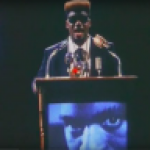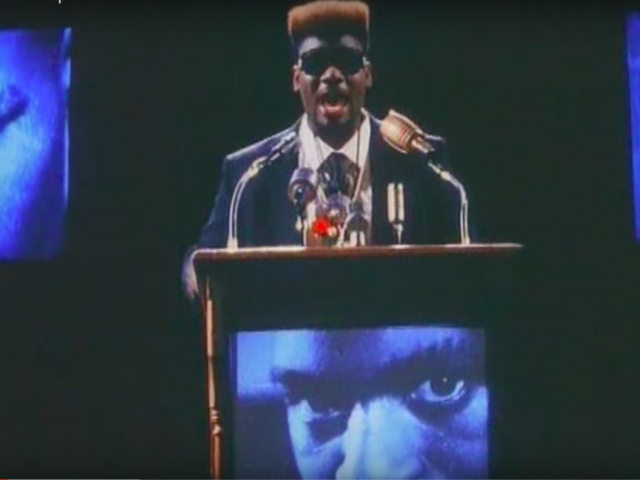- English
- Русский
I've Got The Power!

‘I’ve Got The Power!’
Performative talk show
as a part of ‘States of Control’ exhibition project curated by
Creative Association of Curators TOK (Anna Bitkina and Maria Veits)
August 19, 17.00 - 19.00
HIAP Augusta Gallery (Suomenlinna B 28/2, Helsinki)
“What is truth? Who constitutes the rules of reality? The contemporary thickly media-saturated world is a neoliberal marketplace of subjective realities, where the diversity of “offering” on the “shelves” is dictated by the multiplification of the power centers. The history did not end, as Francis Fukuyama assumed it would, with the collapse of one superpower and ultimate, final rise of the singular winner. The global leadership lost the face and it resulted in diversity of voices that compete for defining “real” on global scale, and the local levels picked up the format at their end. The world is heading towards becoming rather medieval as opposed to cosmopolitan promise of universality and enlightenment. The tool of defining reality hadn’t changed: propaganda covered the walls of Ashurbanipal palace thousands of years ago and now it covers private “walls” of Facebook. Have we got the power to critically evaluate, deconstruct and reveal its hidden agendas, power narratives and enslaving desires?”
by Denis Maksimov, the performative talk show anchor.
Discussion participants and presenters:
Denis Maksimov is an artist-curator, critic, theorist and political scientist. He is a co-founder (together with Timo Tuominen) of Avenir Institute - a think tank, devoted to transdisciplinary research of the potentiality in futures. They realise projects in the expanded field of intersections between philosophy, technology, politics and post-conceptual art. His primary subject of transdisciplinary inquiry is the complexity of relations between aesthetics, power and futures. Denis' recent projects were presented in The Delfina Foundation in London, Atelier Fidalga in Sao Paulo, the de Brakke Grond Arts Centre in Amsterdam, Harlan Levey Projects in Brussels, Marres House for Contemporary Culture in Maastricht, in the context of the 56th Venice Biennale 'All the Worlds' Futures', Off Biennale Cairo 'Something Else', Brussels critical art fair Poppositions, etc.
Denis is an organisational ideologist and political consultant. He has been working with think tanks and expert institutions in Moscow, Brussels and Washington on political risks and issues of present and futures of the EU-Russia cooperation since 2009. Denis is currently based in London and in Brussels.
Maxim Alyukov is a member of the Laboratory of Public Sociology and a doctoral student at the Faculty of Political Science and Sociology of the European University in St. Petersburg. In his research he deals with issues of media and political communication, civil society, social movements and wars in the post-Soviet world.
Saara Ratilainen, Doctor of Philosophy, was awarded First Class with Distinction (Laudatur) for her doctoral dissertation in 2013 in the University of Tampere. Ratilainen now works as a post-doctoral researcher in the University of Tampere and the Aleksanteri Institute. Her research interests include Russian media, gender and cultural studies, Russian language and literature and consumer culture and consumer society in Russia today. In her doctoral dissertation, Ratilainen studied Russian women’s consumer magazines and discursive construction of post-socialist consumer culture. From May to June in the year of 2015 she worked as a visiting researcher in the Leeds Russian Center (University of Leeds). Saara is a member of the research team of Russian Media Lab, a multidisciplinary research project focusing on Russian media and freedom of expression. The research team of this project examine the execution of state control mechanisms, censorship, and the remaining free spaces of independent reporting. The project envisions to deepen the Russian expertise of Finnish journalists through facilitating interaction between Finnish media, researchers, and students.
Kalle Hamme is an artist based in Helsinki, whose work examines cultural encounters and their impacts both in historical and contemporary contexts. Since 1999 Hamm have worked together with an Iranian born and Helsinki based artist Dzamil Kamanger. Their collaborative projects are dealing with the position of marginality in mainstream culture. In their latest works, the ponderings on the encounter of two cultures have evolved into examinations of global networks. At the exhibition 'States of Control' Hamm and Kamanger present project 'East-West Exhibition Battle' that explores an ambiguous position of Finland during the Cold War period in relation to the Soviet Union and Western countries. The artists took cultural policy between these countries as a main trigger for their research. In their new work Hamm and Kamanger have done a closer study of the foreign artists’ exhibitions held in Finland 1880–2002 found at the on-line service of the Finland’s Visual Art Bibliography. 'East-West Exhibition Battle' aim at outlining the complexity of the state's strategy in political relation between East and West and the role of art as an important instrument of both diplomacy and propaganda.
Alevtina Kakhidze was born in Eastern Ukraine. She has studied in Kiev National Academy of Fine Art and Architecture (1999-2004) and in the Jan Van Eyck Academy in Maastricht (2004-2006). Since 2002 she has exhibited her work in Ukraine as well as internationally. Kakhidze declares about her cultural identity, that it includes parts of Ukrainian, Georgian and West European mentalities. She inherited Georgian surname from her father, and was raised within Russian culture, in its Soviet incarnation. She has been an active supporter of the Maidan movements during winter 2013-2014. Information war between Ukraine and Russia, West and East forms the complex basis of her work in the recent years. She has participated in numerous exhibitions worldwide, including Manifesta 10 (2014) and the 6th Moscow Biennale for Contemporary art (2015). Based in Muzychi, Ukraine, 19 kilometers from the city capital of Kiev, Kakhidze is a conceptual artist who works with ideas of consumption, consumerism and power.
Her project at the ‘States of Control’ exhibition deals with recent history of the Russian-Ukrainian conflict. In her project ‘Preventive Measures Against Occupation’ Kakhidze together with artists, activists, sociologists, social workers, cultural managers - residents of Slavyansk and other cities of Ukraine collects evidences of the beginning of the invasion of Russian military force into the Ukrainian territory. By using journalistic investigation methods she tries to pin down facts of the political conflict, preserve it, make accessible and widely distribute.
The project "States of Control" is a part of the HIAP Connecting Points programme and is supported by Kone Foundation and The Ministry of Education and Culture of Finland. The project is conducted in collaboration with URB Festival 2017.



